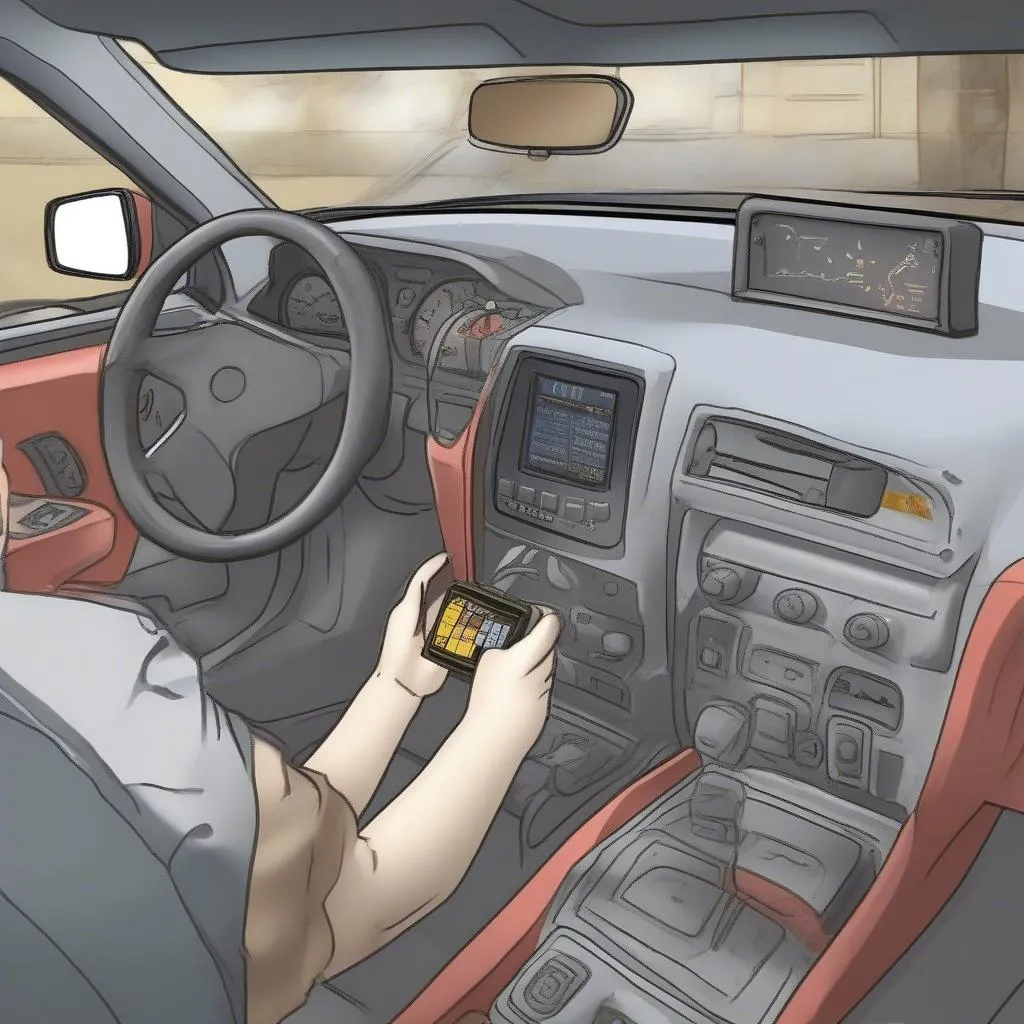Imagine you’re driving down the road in your car, and suddenly, the engine starts sputtering. You pull over, but you don’t know what’s wrong. You could call a tow truck, but wouldn’t it be great if you could get a bit more insight into the problem? This is where an OBD device comes in handy.
What is an OBD Device and Why is it Important?
An OBD (On-Board Diagnostics) device is a tool that allows you to connect to your car’s computer and access diagnostic information. It’s a bit like a doctor for your car, giving you a glimpse into the engine’s health. But instead of a stethoscope, you use a small device that plugs into your car’s OBD port.
This port, usually located under the dashboard, is a standardized connector that allows technicians and owners to access the car’s diagnostic data. With an OBD device, you can check for error codes, monitor engine performance, and even receive real-time information on your vehicle’s systems.
What are the benefits of using an OBD device?
OBD devices can be invaluable tools for both car owners and mechanics. Here are just a few of the benefits:
- Troubleshooting and diagnosis: OBD devices can quickly identify the root cause of a problem, saving you time and money.
- Real-time monitoring: They allow you to monitor engine performance parameters like speed, engine load, fuel consumption, and more.
- Engine efficiency: By identifying and addressing issues early on, you can optimize your car’s fuel economy and overall performance.
- Safety: Some OBD devices can even send alerts to your phone if your car is experiencing a safety-related issue.
- Increased vehicle lifespan: Regular maintenance based on data from an OBD device can help extend the life of your car.
Understanding Different Types of OBD Devices
There are several different types of OBD devices available, each with its own unique features and functionality.
- Basic OBD scanners: These are the most basic type of device, offering a simple interface to read and clear error codes.
- Advanced OBD scanners: These devices offer more features, such as real-time data monitoring, sensor readings, and graphing capabilities.
- OBD adapters: These devices allow you to connect your smartphone or tablet to your car’s OBD port, giving you access to a wide range of apps and software.
How to Choose the Right OBD Device
When choosing an OBD device, consider the following factors:
- Your needs: What do you want to use the device for?
- Compatibility: Ensure the device is compatible with your car’s make and model.
- Features: Consider the features you need, such as real-time data monitoring, error code reading, and compatibility with specific apps.
- Price: OBD devices range in price, so choose one that fits your budget.
Common OBD Device Uses
OBD devices are used for a wide range of purposes, including:
- Diagnosing engine problems: These devices can help you identify the cause of engine problems such as misfires, stalling, or poor fuel economy.
- Monitoring engine performance: You can track engine parameters like speed, engine load, and fuel consumption in real-time.
- Clearing error codes: If your check engine light is on, an OBD device can help you clear the error codes, but remember that this doesn’t fix the underlying problem.
- Improving fuel economy: By monitoring fuel consumption, you can identify areas where you can improve your fuel economy.
- Finding a mechanic: Some OBD devices can help you locate a nearby mechanic who can help with specific problems.
Finding the Right OBD Device for Your European Car
If you own a European car, it’s important to make sure you choose a device that’s compatible with your vehicle’s specific protocol. Many OBD devices are designed for American cars, and they may not work correctly with European models. Look for devices specifically designed for European cars, or consult with a knowledgeable mechanic to ensure you get the right device for your needs.
Where to Purchase an OBD Device?
OBD devices can be purchased from a variety of retailers, both online and in-store.
- Amazon is a great place to find a wide selection of OBD devices.
- AutoZone and Advance Auto Parts are also good options, especially if you prefer to buy in person.
- eBay is a great place to find used or refurbished devices at lower prices.
It’s crucial to choose a reputable seller, especially when buying online. Read reviews from other buyers and compare prices before making a purchase.
 OBD device being plugged into the car's OBD port
OBD device being plugged into the car's OBD port
Conclusion
OBD devices are a valuable tool for any car owner. They can help you diagnose problems, monitor engine performance, and improve fuel economy. With the right device, you can keep your car running smoothly and efficiently.
If you have any questions about OBD devices or need assistance with diagnosing your car, don’t hesitate to reach out. We offer 24/7 expert support for all your car diagnostics needs. Contact us via WhatsApp at +84767531508 and we’ll be happy to help!